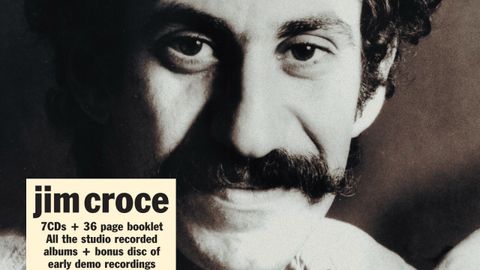It’s hard sometimes to separate your feelings for an artist’s work from those you might have for them as an individual – who can now listen to LostProphets with unreserved enthusiasm? Conversely, a cynic might suggest that Pennsylvanian singer-songwriter Jim Croce’s music has been viewed partly through the lens of his tragic passing – he died in a plane crash in 1973, at the height of his fame.
There’s a YouTube clip of perhaps his greatest song, Time In A Bottle, accompanied by home video of Croce playing with the wife and son he left behind, and it adds an almost unbearable poignancy to an already touching, wistful ballad.
If you’ve only heard that song by Croce, the upbeat vibe that abounds on most of his six studio albums might surprise you. His early albums plough the same folky furrow as a more strait-laced Tim Buckley, before country and singer-songwriter influences give later sets more of a Cat Stevens feel.
But he could always write tunes that struck resonant minor chords: New York Is Not My Home will speak to anyone who’s felt lonely in the big city, while I’ll Have To Say I Love You In A Song remains an anthem for every sensitive but uptight romantic.
A seventh album of demos from around the time of his breakthrough 1972 album You Don’t Mess Around With Jim is also a stripped-down delight, and proof that his talent needed the bare minimum of dressing up to shine through./o:p


